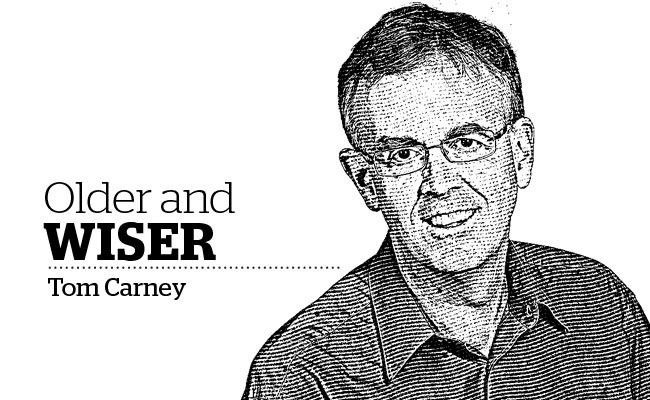Seniors vote. In every election. Like clockwork.
That gives them political clout beyond their numbers alone. Some 75 per cent of citizens age 65 and older voted in the May 2011 federal election - the best turnout of any group. More than 70 per cent of those ages 55 to 64 also cast a ballot. Among 25-to 44-year-olds the proportion of those entering a voting booth is closer to 45 per cent. And just under 40 per cent of our youngest citizens - ages 18 to 24 - voted in the 2011 election.
There is one exception to the rule that propensity to vote increases with age. There's a marked decline in voter turnout - it drops to approximately 60 per cent - after age 75.
Why is that? Are the numbers of older voters declining? No, older seniors make up the fastest growing segment of the 65+ population in Canada.
Are seniors' issues being ignored in election campaigns? Hardly!
Do seniors become less interested in the workings of government as they get older? There is no evidence of that. Indeed as people age they have a vested interest in protecting the valuable benefits they receive from government. So what's going on? The research suggests that the culprits here are issues related to health, disability and living arrangements, which present the most significant barriers to voting for seniors. Older seniors living in long-term care facilities generally have higher levels of disability than those living at home, making it harder for them to get out and vote.
Statistics Canada tells us that approximately eight per cent of those 75 to 84 and 32 per cent of those over 85 live in a long-term care facility.
Is there an alternative to going to the polls when it comes to casting a ballot? In a federal election a returning officer may, with the approval of the chief electoral officer, establish mobile polling stations that consist of two or more institutions where seniors reside. The returning officer may also create a single ordinary poll in a seniors residence with a high number of electors. The poll is only for electors living in that residence. If electors are unable to leave their beds, it is possible for the station to be brought to the bedside, again at the discretion of the deputy returning officer. A registered voter can also vote by mail using a special ballot voting kit.
I've spoken to a number of seniors in care and care operators over the years who were unaware that if they or their residents couldn't get to the polling booth, the polling booth could come to them.
What we see here is another example of an unintended consequence of the aging of Canada's population.
Marc Mayrand, Canada's chief electoral officer, noted that the main challenge for our electoral democracy isn't voter fraud it's voter participation.
In fairness we need to ensure that the electoral system facilitates participation by the elderly in elections. But it really goes beyond that. Elections are decided by people who show up at the polls. The participation of seniors in an election, or lack of it, can have a direct impact on who gets elected to run the country and that affects us all.
Tom Carney is the former executive director of the Lionsview Seniors' Planning Society. Ideas for future columns are welcome. [email protected]



